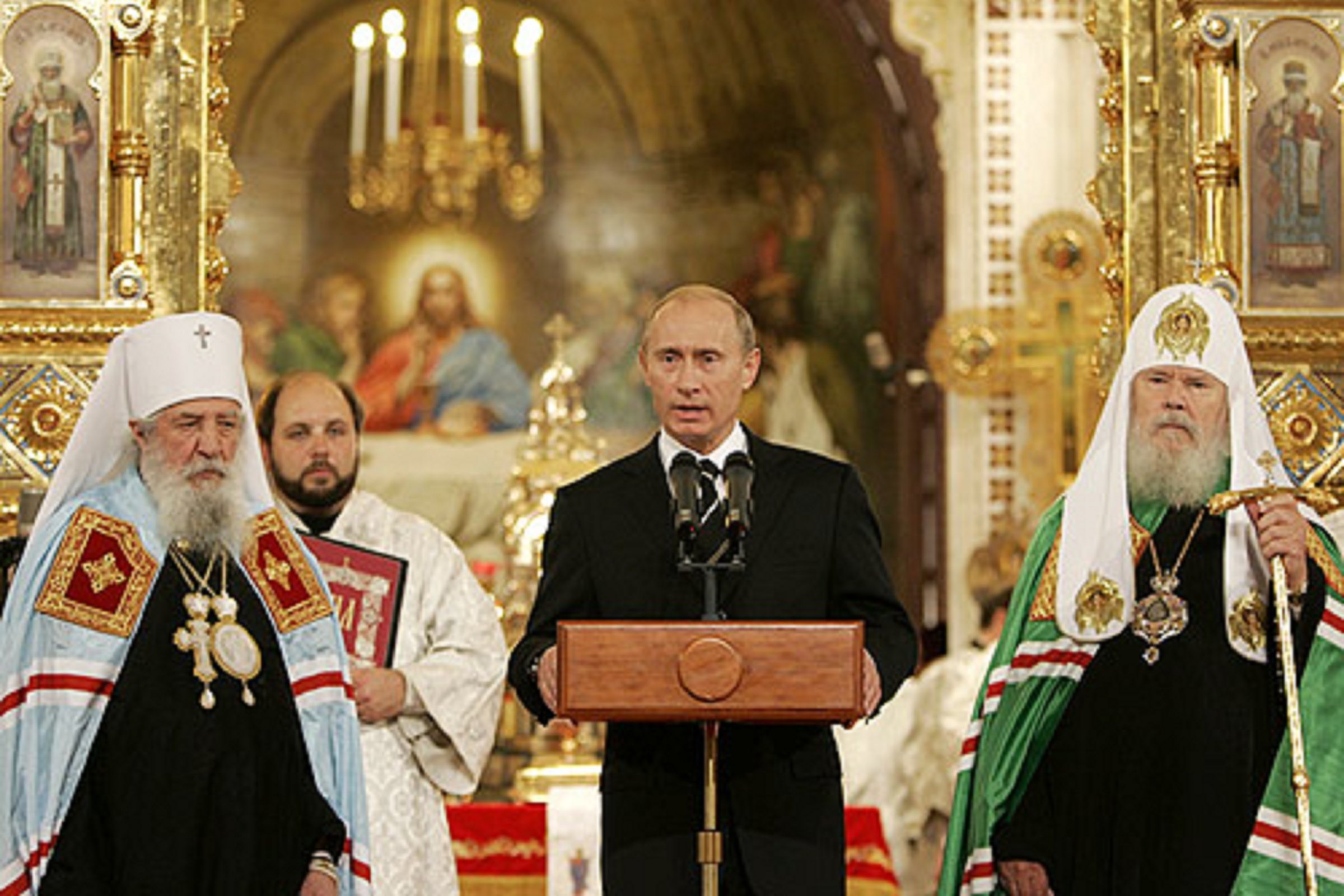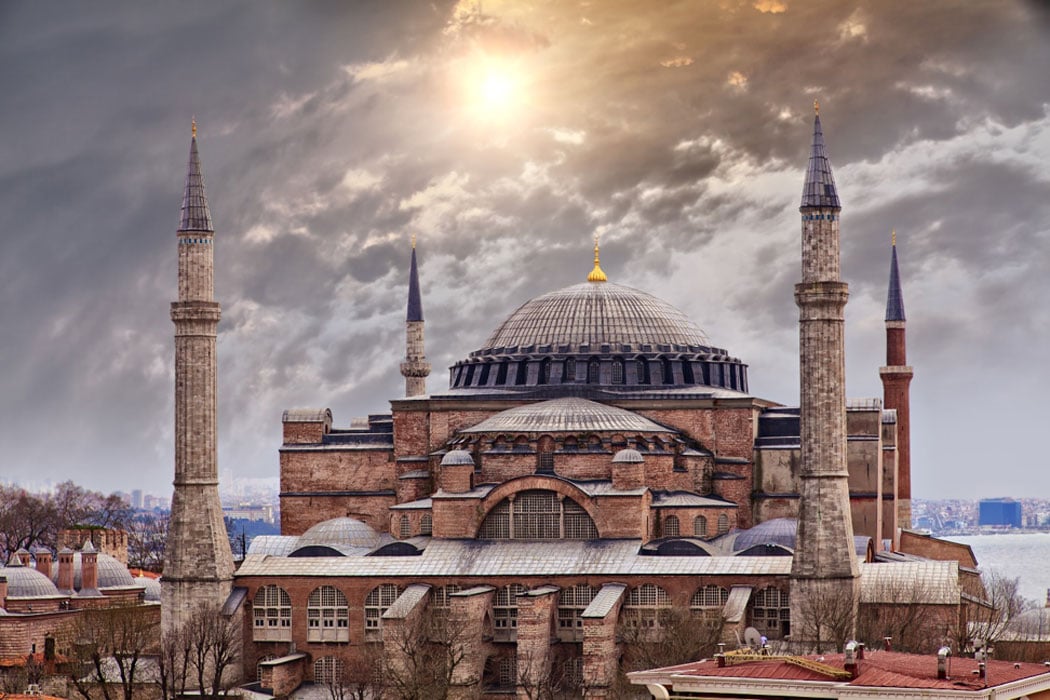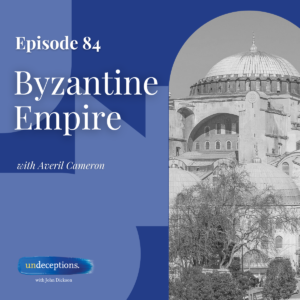Byzantine (adjective); complicated, secret and difficult to change (Oxford Learner Dictionary)
“I’ve often felt that the Byzantine Empire is perhaps the best-kept secret of world history,” says John Dickson.
Formerly known as the Eastern Roman Empire, with its proud capital of Byzantium – later renamed Constantinople (now modern-day Istanbul), the Byzantine Empire ruled for an astonishing 1100 years, from the mid-4th century until its eventual downfall when the Ottomans sacked Constantinople in 1453.
Indeed, its citizens felt the Roman Empire – which supposedly “fell” in the mid-5th century- was in fact alive and well, with Byzantium declared the capital of the Empire in 324. This “New Rome,” as it was known, was the centre of the greatest power the world had ever known – one which would endure for centuries to come.
With its capital renamed Constantinople in 330 by Constantine the Great, the Byzantine (Roman) Empire was a centre of culture, intellect, politics and war – the crossroads for world history for well over a millennia.
However, the name ‘Byzantine’ today is synonymous with bureaucracy and red tape, leading one to imagine systems of impenetrable complexity and frustration – a far cry from the wonders of a mighty civilisation ruling across millennia.
“The reputation is undeserved, to say the least…”, says John.
“It’s an entirely Western European perspective to think of the fall of Western parts of the Roman Empire as the collapse of the Roman Empire per se.
“Well before the collapse of the Western region this Eastern region was by far the more intellectually, culturally and financially rich part of the Roman Empire.
“When the Western Parts of the Empire fell in the early 5th century …. not for a moment did the millions of Eastern Roman citizens think that the Empire itself had fallen.”

Istanbul’s famous Hagia Sophia – originally constructed in 360, it was one of the hallmarks of the Byzantine Empire
Professor Dame Averil Cameron has dedicated much of her working life to illuminating the oft-forgotten history of the Byzantine Empire, having served as the chair at the Oxford Centre of Byzantium Research for 10 years. Currently, she works as president of the Society of the Promotion of Byzantine Studies.
She insists that the people of Byzantine saw themselves not as Byzantine, but as Roman.
“They were the continuation of the Roman Empire (but) in Western Europe you have Charlegmane setting himself up as an Emperor over Rome in the 8th century … it’s deeply confusing,” she said.
Further muddying the waters is the strong Christian heritage of the Byzantines – predating the papacy-led Holy Roman Empire by several centuries.
With Emperor Theodosius I declaring Christianity the Roman Empire’s official religion in 380, Constantinople became a centre of theological development. The Eastern region of the empire held numerous councils and debates involving the early church fathers, with crucial writings such as the Nicene and Nicene-Constantinopolitan creeds, the Confession of Chalcedon and countless others emerging from the city around the 4th century.
More broadly felt legacies of the Byzantine church included the first health centres dedicated to the treatment of the general public – an idea conceived by Saint Basil, Bishop of Caesarea in Cappadocia in the late 4th century, which laid the blueprint for the public hospital. Elsewhere, the codifying of the Roman Law by Emperor Justinian in the 6th century, enshrined the practice of Church sanctuary in law for over millennia. With many other reforms, including an emphasis on education and charity for the general community, the Christianised Byzantine Empire ushered in radical reforms that reshaped the world.
However, the emergence of Christianity in the East also carried geo-political consequences, the shockwaves of which are still being felt today.
“Eastern Christianity is now very widespread in the form of Orthodoxy, and you can’t understand Eastern politics and what’s going on in the world today unless you understand something about Orthodox Churches,” Professor Cameron said, noting the influence of Eastern Orthodoxy in the ongoing war in Ukraine.
“Hardly any mention has been given to the religious element of the conflict, and yet for (Russian President) Vladimir Putin … Christianity came to Russia from Ukraine. Prince Vladimir the Great (10th century) was from Kyiv, and he became a Christain through Byzantine influence.
“Moscow became Christain because it followed the example of Eastern Christianity coming from what is now known as Ukraine.

Russian President Vladimir Putin’s politics have been shaped (in part) by his connection to the Orthodox Church
“Putin is very close to the church of Moscow, which takes a tough line … you can bet your life that it was a powerful influence for Putin – but it’s hardly ever mentioned (in the media).”
The Byzantine Empire was anything but complicated and boring; it was a cultural centre of the ancient and medieval world, and its influence echoed through the centuries.
The Empire eventually collapsed in the 15th century, following centuries of wars against, among others, the Arabs, Bulgars, Crusades and Persians.
Eventually, Constantinople was sacked in 1453 by the Ottomans – an event of such magnitude it’s widely viewed as the conclusion of the Middle Ages.

Ioanna Zikakou’s ‘Seige of Constantinople’
“Byzantium was amazing and a mess – it was mixed, like us really,” says John Dickson.
“It was violent and charitable – learned and bigoted.
“From the Nicene Creed to hospitals – these people read both homer and Christ… and they found a way to love both and reshape society in Christ’s name – sometimes for ill, often for lasting good.
“The Byzantine Empire itself doesn’t have to be impenetrable to us, today.”
By Alasdair Belling, adapted from the Undeceptions episode ‘Byzantine Empire‘

Want to be further undeceived?
Check out our network of podcasts and articles in the Undeceptions Library.











































